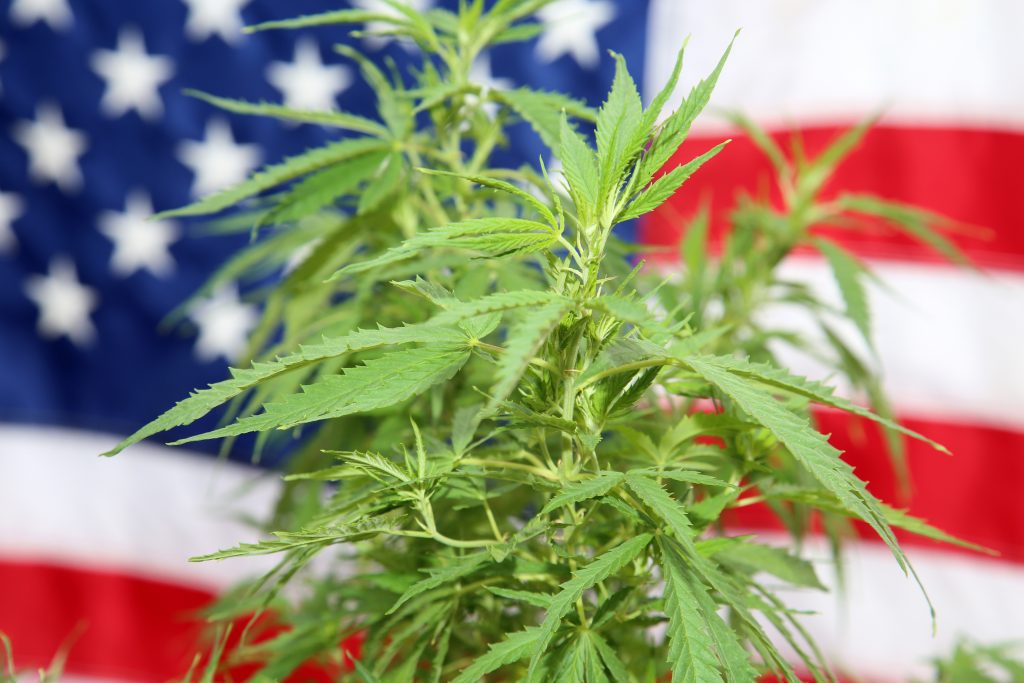After passing a bill back and forth between the Senate and the House, and threats of a veto if certain provisions remained, Connecticut became the 18th state, when it legalized recreational cannabis this week. The question now, which state is next, and when can we expect it to happen?
Now that Connecticut has legalized recreational cannabis, the market for products has grown even bigger, and that means more options. Luckily, Connecticut did not ban delta-8 THC. Delta-8 is the half-brother to delta-9 THC – what most people associate with getting high. However, delta-8 doesn’t cause the same anxiety or couch locking as delta-9, and provides a clear-headed high, making it preferable for many users. There is an ever growing selection for Delta-8 THC deals, so go ahead, and pick the product best for you.
Connecticut legalized recreational cannabis
On June 17th, after haggling back and forth, Connecticut’s House and Senate were able to agree on the accepted provisions of a cannabis legalization bill. The Senate Bill 1201 was originally passed by the Senate during regular sessions, however it didn’t get to the House before congress adjourned for the year. This led to requiring a second vote in a special session, before which the Senate added some last-minute provisions, one of them related to equity.
The original bill stated that based on where a person lived, they could gain the ability to get a license faster to cultivate and produce cannabis products, thereby allowing more easy entrance into the market. This was geared mainly toward people from areas where drugs have taken a great toll.
Before the second Senate vote, the provision was changed to include anyone who had been convicted of a cannabis crime, or other crimes, and the family members of those who had been convicted. Somehow, that actually passed, even though the overstep was huge, and Governor Ned Lamont threatened to immediately veto that version of the bill if it did pass the Senate and the House.
The House then scrapped the provision, passing the bill in a vote, before sending it back to the Senate to vote on the same version. A bill in government cannot be passed unless both the house and senate vote on, and pass, the exact same version. This was done on Thursday June 17th, and the bill was signed by Governor Lamont on Tuesday June 22nd.

Connecticut is now the 18th state in the US to allow a recreational cannabis market. Said Lamont of the bill, “The law that I signed today begins to right some of those wrongs by creating a comprehensive framework for a regulated market that prioritizes public health, public safety, criminal justice, and equity. It will help eliminate the dangerous, unregulated market and support a new and equitable sector of our economy that will create jobs…”
What cannabis rights do Connecticut residents have?
The basics
- According to the new law, adults can have up to 1.5 ounces of cannabis on their person, and up to five ounces in a locked home or car (glove box). This starts on July 1st.
- Cultivation, manufacturing, and sale of products require licensing that can be acquired from the state.
- The law stipulates that delta-8, delta-9, and delta-10 all count as cannabis, and can be treated the same way. This means delta-8 has not been banned!
- Cannabis can be given without a license as a gift, but not sold. And not to anyone who has paid for, or donated to obtain, another product of the same nature.
Cultivation
- Beginning October 1st, 2021, medical patients will be allowed to grow up to six plants in their homes – three mature, three immature.
- This extends to the rest of the state’s adult non-medical population on July 1st, 2023.
- If a person jumps the gun and is caught growing before the aforementioned time when it becomes officially legal, the action will no longer be considered a felony by July 1st, 2021, with lesser non-criminal punishments given.
Prior records
- In terms of expunging prior convictions, the law states that some cannabis convictions will be automatically erased if they happened between January 1st, 2000, and October 1st, 2015.
- Those who want to expunge their cannabis-crime from their record, which occurred out of this time frame, will have to petition for it.
- While I haven’t seen a listing of the specific crimes that will be automatically expunged, I can nearly guarantee that it only involves simple possession and use crimes, and possibly minor selling crimes. Any large-scale cultivation, trafficking, and sales crimes will likely not lead to expungement.
Equity
This was the part that nearly tanked the bill in congress, and relates to who is allowed first crack at licensing for cultivation, production, and sale of products.
- At least ½ of all the first licenses to go out, will go to applicants from communities that have taken a large toll due to the ‘war on drugs’.
- The legislation creates the Social Equity Council which will provide programming and help to those who apply for applications under social equity.
Taxes, taxes, taxes
- A 3% municipal sales tax will be applied.
- A 6.35% state sales tax will be applied.
- A THC tax will be applied as follows: 2.75 cents per milligram of THC in edibles, .625 cents per milligram of THC in flowers, and .9 cents per milligram of THC in all other products.
- This puts Connecticut at approximately the same tax rate as Massachusetts, which is about 4% lower than New York.
- Portions of tax revenue from sales will go to offering economic opportunities to communities hit hard by drugs, and to rehabilitation services and substance abuse prevention programs.

Misdemeanors
Obviously, there are plenty of things that can still get you in trouble. Besides having more than the stipulated amount on person or in houses/cars, there are other things that can put a person in hot water.
- Providing cannabis to someone under the age of 21 is considered a Class A misdemeanor.
- Allowing an under-21-year-old to loiter in a cannabis store can result in a fine of 1,000 for the first offense, and be considered a Class B misdemeanor for subsequent offenses.
- If a person under 21 lies about their age to buy cannabis (verbally or with a fake ID), the person can be charged with a Class D misdemeanor.
- Any delivery service will need to verify ages and IDs online.
- The law requires that police be trained in Advanced Roadside Impaired Driving Enforcement (ARIDE), and also allows for evaluations through a Drug Recognition Expert (DRE), which can lead to license suspensions for people caught driving while impaired on any substance.
What states should we expect to see legalize next?
The first interesting thing to happen when Connecticut legalized recreational cannabis, is that it left only two states in New England that still outlaw recreational cannabis: Rhode Island and New Hampshire. And Rhode Island is actually working on changing that as well.
Rhode Island
On June 22nd, 2021, the same day that Connecticut’s Governor signed the state’s cannabis bill into law, Rhode Island had its own partial victory. On the 22nd, Rhode Island’s Senate approved a cannabis legalization bill in a 29-9 vote. That’s a pretty big margin. This bill was introduced in March of this year, which was actually followed up just a few days later by Governor Dan McKee coming out with a statement about making cannabis legislation key, including it in the fiscal plan for 2022.
The fact that both the Governor and the Senate are pushing for legalization, makes clear it will probably happen soon. This was made that much clearer by Joshua Miller, the Health & Human Services Chairman in the Senate, who made this statement: “It is important that we act expeditiously to enact a regulatory framework.”
A final note to show just how much Rhode Island wants to legalize, a third call for legalization came from the House as well, by Representative Scott Slater, along with cosponsors. There seems to be agreement from all sides about getting a bill done this year, making Rhode Island nearly a shoe in for recreational cannabis legalization very soon.
Minnesota

Minnesota is another state looking to join Connecticut with legalized recreational cannabis. There seems to be more friction in congress in the Gopher state, meaning that legalization will likely come down to a ballot measure to decide it in 2022. The current bill being considered is HF600, which was brought forth in the beginning of February, 2021. This law would allow those 21 and above to have up to 1.5 ounces of flower on their person, and would also expunge simple cannabis crimes. The bill has so far passed nine different committees in the legislature.
The bill requires a full House vote, which should easily pass given the House is democratic led. However, the Senate is republican held, and there is more opposition to the bill there. This break in party lines between the two parts of congress has already shown to effect (stop) the passing of other progressive legislation, and since the Minnesota legislature tends to vote by party lines, this means the bill is almost sure not to pass this way. Luckily, Governor Tim Waltz does support legalization, and there is a growing expectation that if/when it gets stymied in the Senate, that Waltz will create a ballot initiative for the mid-term elections in November, 2022. And that should get the job done.
Hawaii
A third state to be on the cusp of legalization is Hawaii, but this state also has some issues with a final pass. Unlike other states that have problems with democrats vs republicans in passing cannabis legislation, Hawaii is actually being held up by democratic Governor, David Ige. Several times the legislature has passed bills for adult-use cannabis and expungement of records, and every time, the governor has vetoed. In fact, in 2019, he vetoed two out of three bills related to cannabis. The only one he was okay with, was a decriminalization measure for up to three grams of bud. He has expressed concerns for two current bills working their way through congress now.
He hasn’t made a specific statement about vetoing these pieces of legislation should they come through to his desk, but it’s expected that he would, given his vetoing history, and general agreement with the federal government on cannabis being a Schedule I substance.
Luckily, Hawaii limits governors to only two terms, and Ige is set to leave office in November 2022. Waiting for him to leave office might, unfortunately, be the only way to get a cannabis legalization bill passed, especially if a new governor is voted in who agrees with legalization. So while Hawaii’s government is ready and waiting for legalization, it probably won’t happen until there’s a new governor in office.
Conclusion
18 is over 1/3 of all US states. Seven more states and a clear half of the country’s states would be legal. And considering this includes some of the more populated states, like California, New York, Illinois, and Michigan, somewhere in the neighborhood of half the population is living in a legalized location. Which state will be next is certainly a big question, along with the bigger looming question of, at what point does the US federal government have to give it up and legalize nationally?
Hi there! You’ve made it to CBDtesters.co, the #1 location for the most up-to-date cannabis-related news worldwide. Check thru the site daily to stay on top of the ever-changing world of legal cannabis, and sign up for our newsletter, so you never miss a story.
Resources
Connecticut Ready to Pass Recreational Legalization Bill
Start Spreading the News: Recreational Cannabis is Legal in New York… and New Mexico The Delta 8 Weekly Newsletter (All you need to know about Delta 8 thc), the Best Delta 8 THC Deals and the Best Delta-10 THC deals The Question of Delta-8: Recreational or Medicinal?
The MORE Act – Will Cannabis Be Legalized Federally This Month? Delta-8 THC Threatens Legal Cannabis Industry
Texas Ready to Pass Marijuana Decriminalization Bill
New Jersey Wants Home Cultivation for Cannabis









